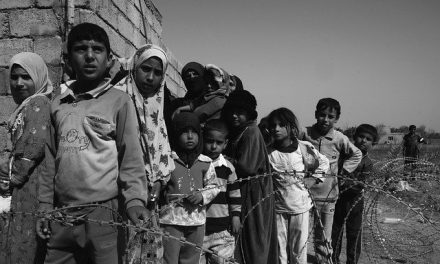When crisis hits, who do you seek? Who do you depend on when things are awful? Who do you go do when you need critical wisdom and understanding? Who we go to and who we listen to in a time of crisis reveals who we really trust.
Ahab was an infamously bad king. He was passive, weak and married to a strong, controlling woman. He died and now his son Ahaziah became king in his place. Ahaziah did not trust at all in Yahweh as leader of Israel. Instead he trusted Baal-zebub–Lord of the flies.
When he gravely injured himself falling through an upper lattice work, he sent messengers to inquire of Baal-zebub whether he would live or not. Previously even with evil kings, when something bad would happen they would at least still consult Yahweh. It was walking the fence serving and worshipping the Baals but having the LORD in the side wings if things go really bad. But Ahaziah is so evil by this point he doesn’t even do that.
Elijah’s Confrontation
Elijah is sent to him to confront and warn Ahaziah through the messengers he was sending to Baal-zebub:
“Is it because there is no God in Israel that you are going to inquire of Baal-zebub, the god of Ekron?” (2 Kings 1:3).
Ekron was in the Philistine territory. Ahaziah had ditched the LORD and instead was planning on consulting the God of the Philistines, the long-time enemy of Israel. It was treachery and rebellion to the highest.
It’s interesting to note that Elijah here is described as “a hairy man with a leather belt around his waist” (2 Kings 1:8). This is the same verbiage used of John the Baptist who was the Elijah to come. He too is described as wearing “a camel-hair garment with a leather belt around his waist, and his food was locusts and wild honey” (Mt 3:4).
The messengers report this back to Ahaziah and he is furious. So he sends out 50 soldiers and a captain.
The Death of the Soldiers
The 50 soldiers go out to meet Elijah who is sitting on top of a hill. The captain orders him to come to them. It is not at all any respect for the prophet of God in Israel but rather treating him like a commoner to be barked at. Elijah calls down fire from heaven and all the men are burned about and killed.
Then another 50 soldiers and their captain come out and do the same thing. They order Elijah off the hilltop and Elijah refuses. He calls down fire on them and they too die.
Then a third group of 50 soldiers come. This time the captain humbles himself and asks for mercy from the man of God. God tells Elijah not to be afraid of this captain and the men and to go down to him and go to the king.
In this we see perhaps a strange story make sense. If Elijah was afraid of the former ones, it was because they were more than likely coming as an act of war to kill him. This wasn’t just an invitation but a battle.
So when the final captain humbled himself, he was respected God and the man of God, but also showing he wasn’t coming in aggression. He was coming in peace to take him to Ahaziah.
Had Elijah responded to the previous demands he very well would have been killed. They were coming to dispose of Elijah, not have tea and toast.
The Final Warning
Elijah again rebukes Ahaziah and says to him, “Is it because there is no God in Israel for you to inquire of His will?” (2 Kings 1:16). Elijah then tells Ahaziah his injuries will lead to his death. And that is exactly what happened.
Thoughts
Israel in its roots had been a covenant people. After the split evil Jeroboam had wrongly set up substitute worship that included worship of the LORD and the gods. It set in motion that with each generation the fear of the LORD would be less and less to the point that the people would even forget to seek the LORD. They would seek other gods.
I think we as nations and people can fall into the same trap. If we do not stand strong in our faith, we set in motion not for the next generation to build upon what we have done, but rather to slide into more and more evil. So much so that the next generation doesn’t know how or want to call on the name of the LORD. They will call on other means to accomplish the purposes of God. This happens in the church, in the believers lives and in the corporate collection of humanity.
It’s a good reminder for us all that the solutions to the problems we as people and nations face are in the hands and mind of the LORD. Where do we go when we are in crisis? Where do we find our solutions? Where do we find our part of the solutions?
Do we have no God for us to inquire of His will?







